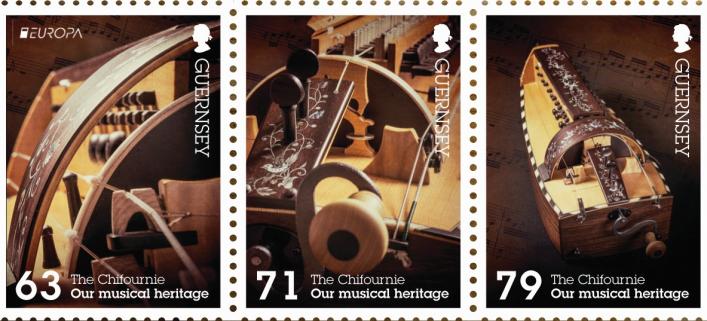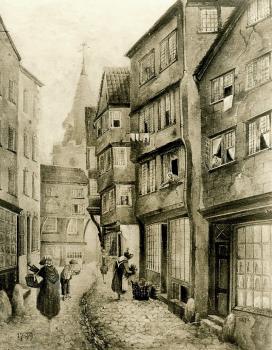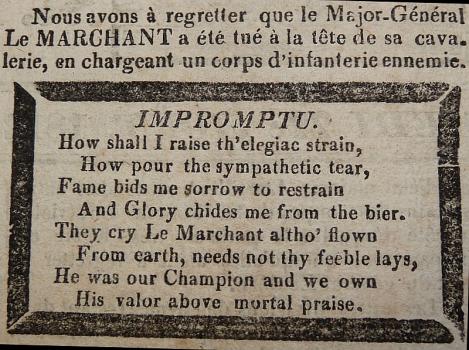A Link with the Past: Ah! Mon beau laurier!
Guernsey's favourite dance, the rather flirtatious 'Ah! mon beau laurier!.' The illustration is of a modern hurdy-gurdy, or 'chifournie,' used in the old days to accompany the dancing: with thanks to Guernsey Post Office, who also produced a superb video of the chifournie being played in Le Hurel barn in Guernsey. The chifournie has been replaced in Guernsey by the fiddle or accordion in modern times.




